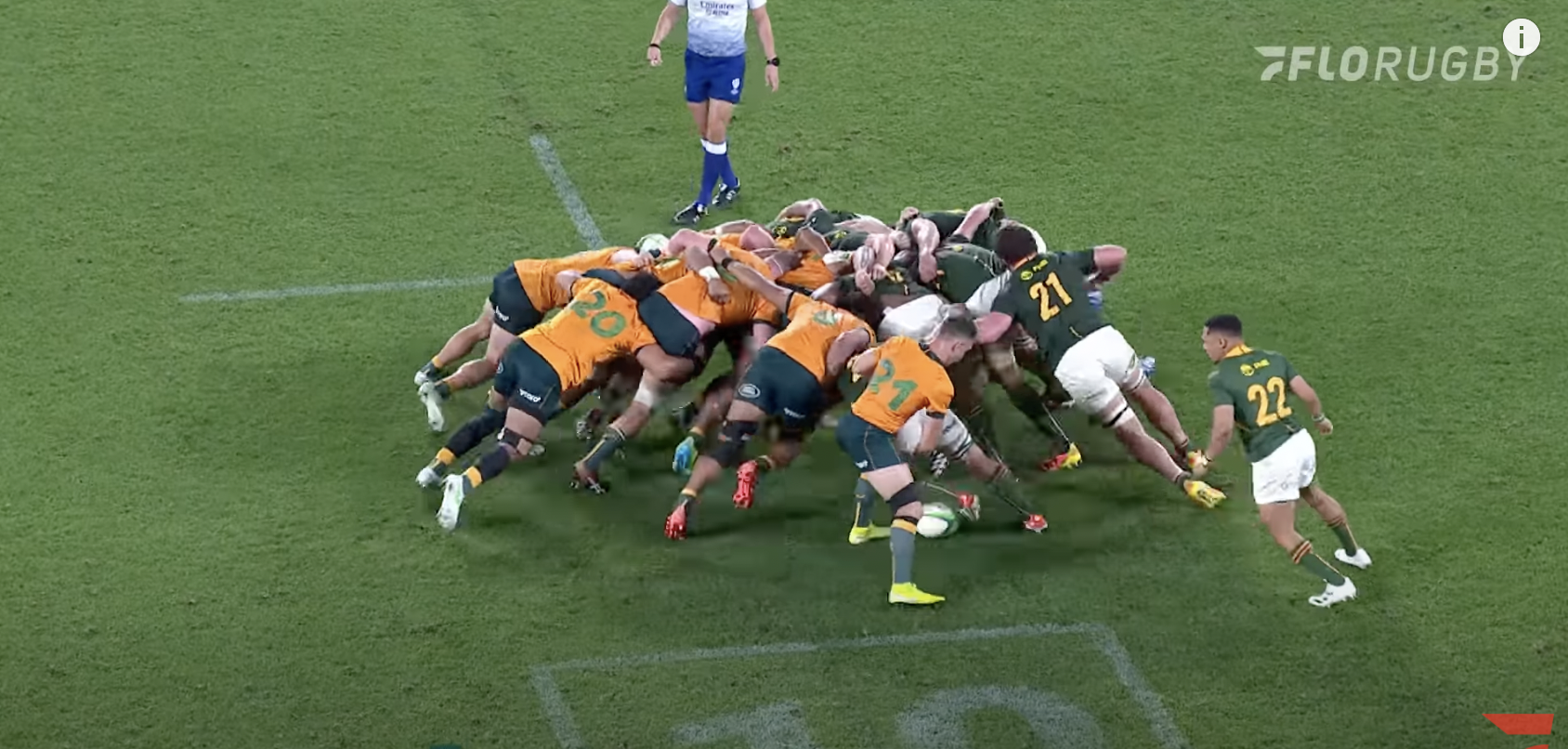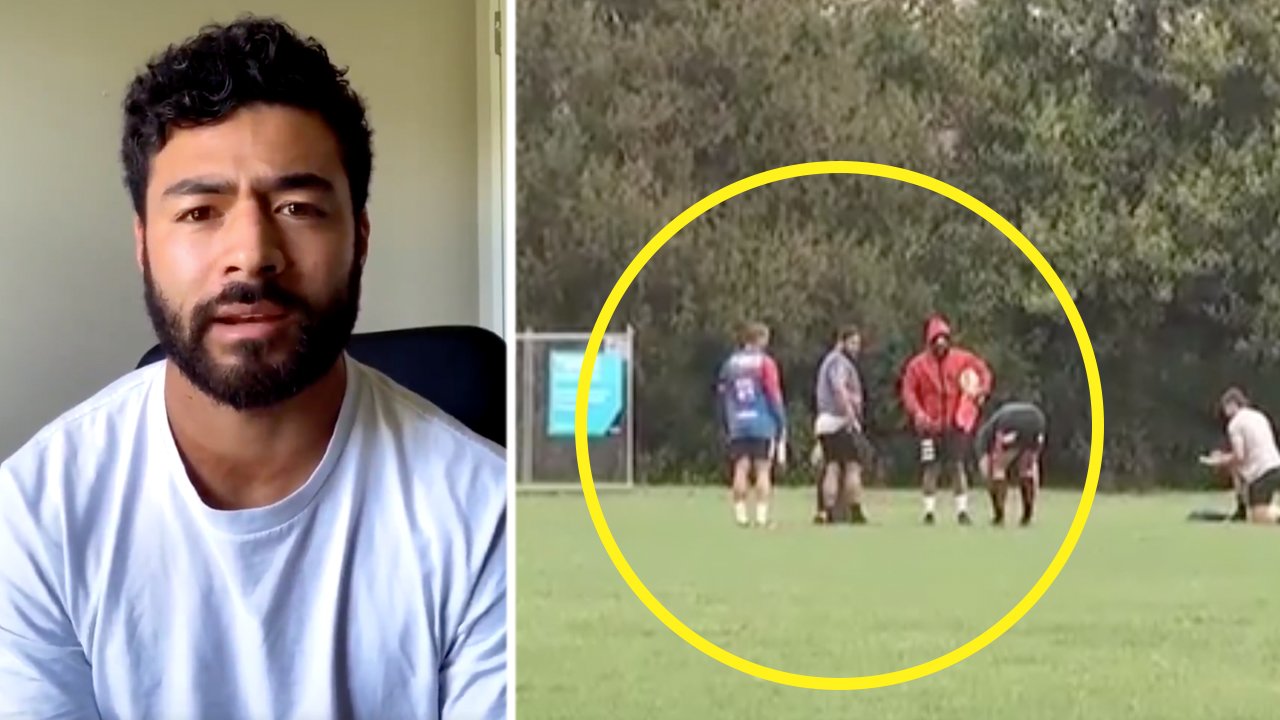
Why the Springboks struggled in the scrum against Australia
One area of the game that South Africa failed to gain any ascendency over Australia in last week was in the scrum, which produced many penalties.
Scrum dominance is often South Africa’s bread and butter, but Luke Pearce pinged the world champions on a number of occasions, much to their consternation as they were sometimes scrums that they were dominant in.
Many South African fans asked referee Nigel Owens on World Rugby’s Whistle Watch this week why this happened, as the Springboks are usually such a force up front, as shown by the strength of their maul against the Wallabies. This was his response:
“The reason why a referee would not reward is because he feels that the dominant scrum is maybe illegal. Which means you’re driving them back but you’re doing it illegally. So you’re driving across, or you’re driving in, or you’re driving them down, or driving them up. Because when you drive in a scrum, you need to drive straight and you need to drive square and you need to push the opposition back. So you as an attacking team, even though you’re dominant, you can’t do anything illegal to force them to collapse the scrum. So in that instance, if the referee feels that the dominant scrum is illegal for any of those reasons, he would penalise the dominant scrum and not the defensive scrum. But if you are legal and dominant, then you should be rewarded in the scrum.”
This may not be enough for some South African fans, who want specific reasons why some of their scrums went the other way, but it does help clear up the Law for some. One thing was for sure, the Wallabies were marching the Boks back in the scrum that ultimately decided the game, as Quade Cooper kicked the match-winning penalty. Even then, there have been complaints about the legality of Australia’s scrummaging, which only goes to show what a thankless task referees have officiating the scrum.


